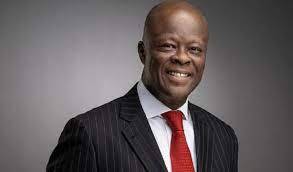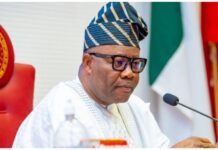 Oil in Third World countries, it is often said, corrupts easily because it provides them with so much easy money; for doing almost practically nothing, such countries receive huge autonomous sums that truly boggle the mind.
Oil in Third World countries, it is often said, corrupts easily because it provides them with so much easy money; for doing almost practically nothing, such countries receive huge autonomous sums that truly boggle the mind.
In Nigeria oil money seems to have corrupted its people, its elite in particular, absolutely. Certainly, anyone reading the 205-page report of the eight-person House of the Representative Ad-Hoc Committee on the management of the country’s petroleum products subsidy regime would find it hard, if not impossible, not to reach such a conclusion.
When President Goodluck Jonathan presented Nigerians with the shocking New Year gift of the complete withdrawal of fuel subsidy for the first time in the country’s history on January 1, all hell broke loose. Predictably Nigerians rose as one for over a week to protest what they saw as an act that amounted to blaming the victim for what they apparently believed was the corruption of the movers and shakers of oil business.
Government’s explanation was that the huge, and seemingly unending and unsustainable, increases in subsidies of petroleum products were due essentially to smuggling and to increases in demand and in the international price of crude. Most Nigerians believed this explanation was untenable. On the contrary, they believed the increases were due essentially to corruption and so they did not see any reason why they should be punished for the acts of brigandage of a clique that had turned the business into a goldmine at their expense.
In the heat of the public protest, the House of Representative felt obliged to get at the truth of the matter and for the first time since the return of civilian rule in 1999, it called an emergency meeting on a Sunday (January 8) to deal with a crisis that was hanging fire over the nation.
Not surprisingly, the report of the Ad-Hoc Committee of eight it set up “to verify and determine the actual subsidy requirements and monitor the implementation of the subsidy regime” seems to have stirred the hornets’ nest like no other. Chaired by Honourable Farouk M. Umar, himself a veteran of the House, the report it submitted last Wednesday could hardly have been more damning in its condemnation of how those involved in the oil subsidy business have ripped Nigeria off.
Predictably the committee’s widespread condemnation has provoked a huge uproar from those indicted, most notably, the Nigerian National Petroleum Company (NNPC), the Department of Petroleum Resources (DPR), the PPPRA, the Petroleum Equalization (Management) Board (PEF(M)B) and virtually all the oil marketers.
The huge rip-off, said the report, had been fostered by what seemed to be a “deliberate understanding among agencies (responsible for managing the sector)” not to keep reliable records.
Particularly guilty of this deliberate poor record keeping, said the committee, was the PPPRA and the NNPC. The subsidy regime they, and others involved, operated between 2009 and 2011, said the committee, was “fraught with endemic corruption and entrenched inefficiency.”
A typical example of this, said the committee, was a company called Eco-Regen Ltd. The company, it said in effect, couldn’t have been more opportunistic. Its two original founders who came from America, said the committee, only brought a proposal to the NNPC for waste management. Next thing, they incorporated Eco-Regen with headquarters in Abuja on August 3, 2010. They then applied to register with the PPPRA on September 11. The company got its first allocation of 15,000 metric tonnes of petrol on January 2011 and was promptly paid 1.988 billion Naira as subsidy “for products NOT delivered.”
The only major actor involved that seemed to have escaped relatively unscathed in the subsidy binge was the Central Bank of Nigeria, whose governor, Malam Sanusi Lamido Sanusi, the committee said, was the first to raise an alarm over the rip-off as long ago as December 2010. That alarm went unheeded. Instead, the PPPRA which was mainly responsible for the management of the subsidy, accused the CBN of raising false alarm. Even then, said the committee, the CBN too was guilty of creating a foreign exchange policy which made it easy for records of the quantities of petroleum discharged to be falsified.
Clearly symptomatic of the dubious record keeping that fostered the big rip-off of the subsidy regime was the fact the custodians of these differed among themselves as to the size of the subsidy last year; 1.3 trillion Naira, according to the oil ministry, 1.6, said the Office of the Attorney General of the Federation and 1.7, according to the CBN.
And, as if to underscore the mendacity of government and some of its agencies in their claims about the size of the subsidy, the Ad-Hoc Committee itself said it was able to establish the actual subsidy for the year at about 2.56 trillion. This, said the committee, was over 900% of the 250 billion that was appropriated for oil subsidy that year.
The unreliability of the records of the subsidy regime kept by government and its agencies apart, there was the fact that the companies registered to engage in the business rose geometrically between 2009 and 2011. Up till 2008 there were only 19 companies, up from ten in 2007 and only five in 2006. By 2009 the companies had shot to 49. In 2011 they nearly tripled to 140.
In the end the committee recommended that the PPPRA, NNPC and other marketers should be asked to refund over 1 trillion Naira to the State. It also recommended that several other subsidy related issues like payment to companies that were probably none existent amounting to about 127.9 billion Naira, and payment to companies that collected forex amounting to $402.61 million for questionable purposes and the alleged double subsidy deductions by NNPC between 2009 and 2011, should be further investigated by the relevant authorities and those found guilty should be punished.
The big question now is will the House adopt the report and if it does will government accept to implement its recommendations? If the past record of the fate of such National Assembly investigations is anything to go by, chances are, the Ad-Hoc Committee’s report will end up in a dustbin.
Already there are credible speculations in the media that all those indicted are lobbying members hard to reject the report. Both the members and the leadership of the current Seventh Assembly have demonstrated that they can resist blackmail and do only what their consciences dictate. Their collective self-will should be strengthened by the fact that the external auditors of the subsidy regime have been summarily dismissed, possibly on the strength of one of the recommendations of the Ad-Hoc Committee.
But then the external auditors may have been no more than scapegoats in a high stakes game that would test the limits of the self-will of anyone with even the highest personal integrity.
By sticking together to write and submit its report about the country’s subsidy regime with all its damming substance, Honourable Farouk and his colleagues in the Ad-Hoc Committee have clearly demonstrated that all hope is not yet lost in the fight against corruption in Nigeria.
Before long we will know if this optimism is a case of a triumph of hope over experience.



